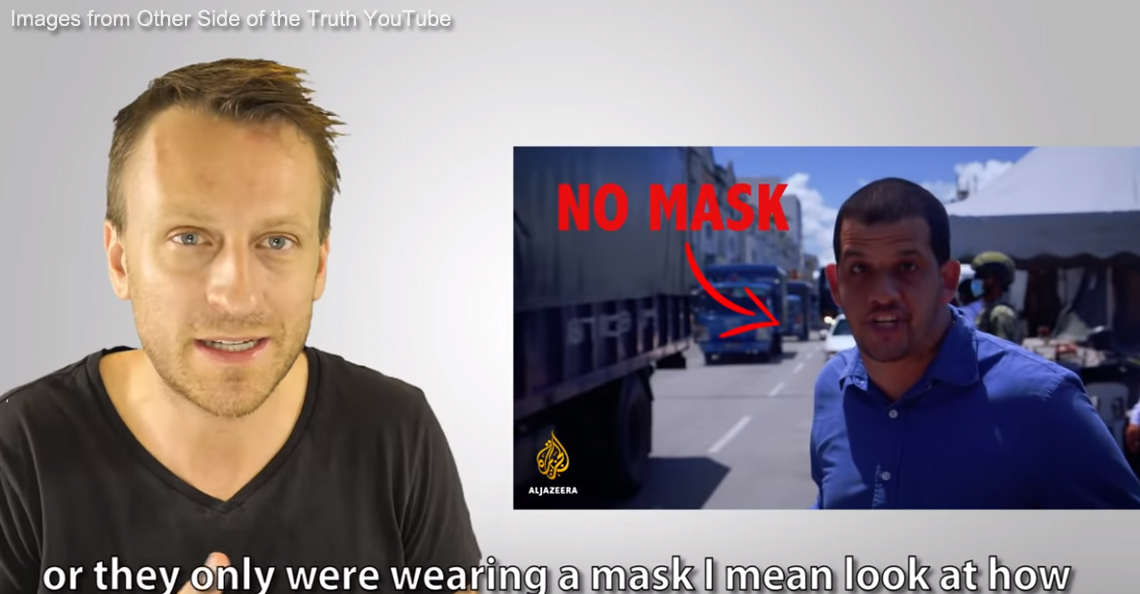NZ study ranks Msia down in human rights. But it’s not just from MCO
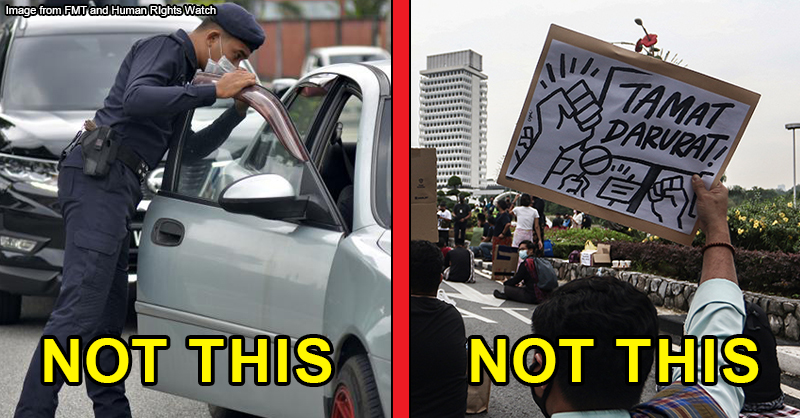
- 499Shares
- Facebook469
- Twitter13
- LinkedIn6
- Email6
- WhatsApp5
Let’s be honest: as a regular rakyat, it can feel like we just followed whatever rules our government made when the MCO started in 2020. Wear a mask? Fine. Can’t travel without letter? Fine. Willingly gave up our info when entering shops or offices? Reluctantly but uh…fine. It’s for contact tracing anyway.
But when you look over at the US during that time, things were….not as compliant, with anti-maskers being an actual thing. And the main argument? Human and Constitutional Rights – basically how much freedom the government can remove, and how much they can force you to do something.
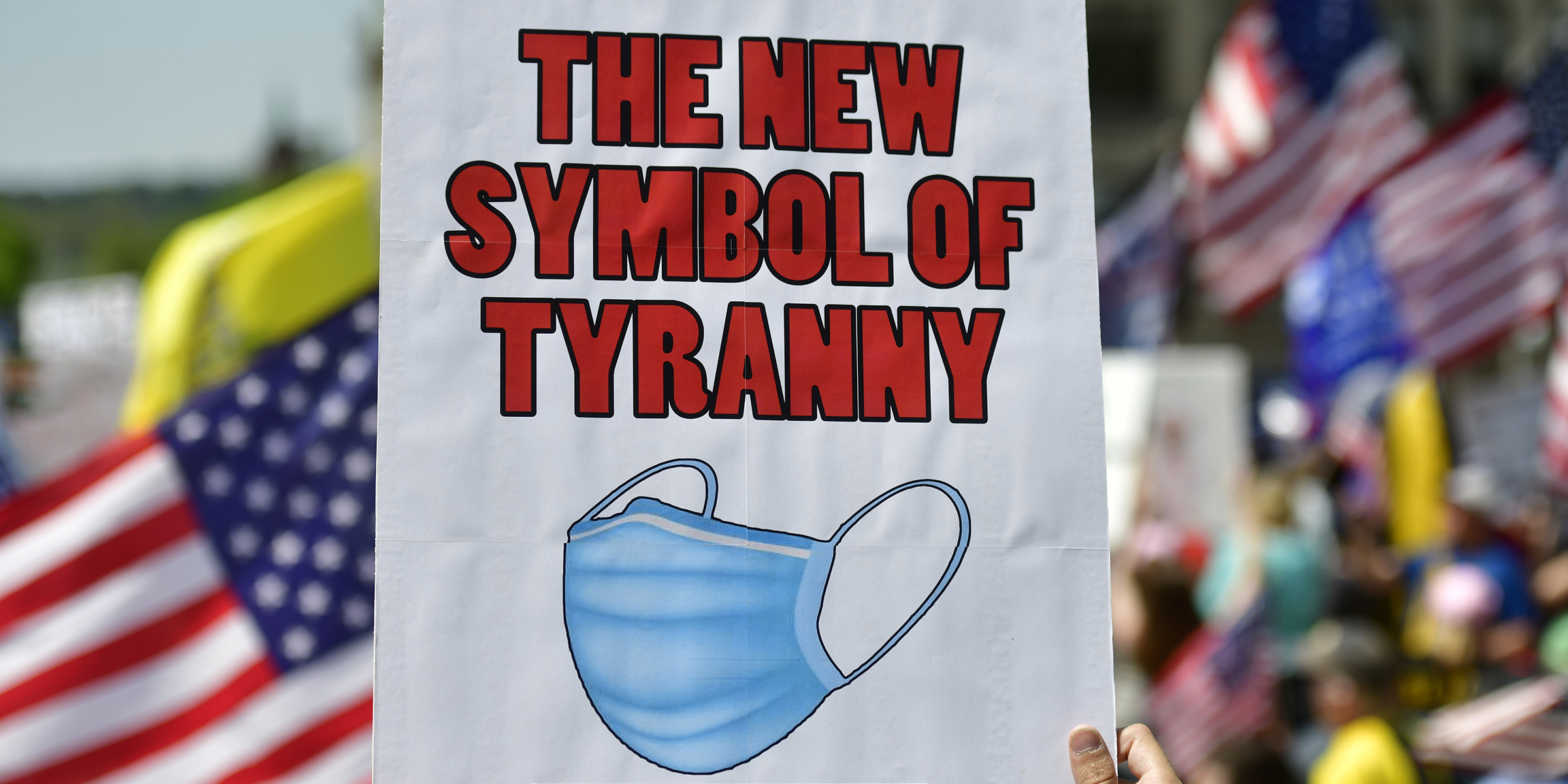
So when you see some article about Malaysia’s Human Rights score dropping, you might be thinking “Oh look at all these atas foreigners judging us with their western liberal ideals. Our cases hit 5 digits already, how to not lockdown?” But here’s the thing… the main cause for the drop wasn’t the MCO or lockdowns at all.
Before we get into the reason, let take a closer look at how we actually scored:
At least we scored better than Vietnam 🤷♂️?
The HRMI (Human Research Measurement Initiative), a New Zealand-based research project recently released a report of their findings after surveying people involved with human rights across 39 countries. These were based on 8 major issues, and each participant gave a score between 1 and 10 on how they think their country managed them.
The study focuses on two main aspects of human rights – the first being the safety from the state (how safe we are from the gomen) and the second being empowerment (how free we are to disagree with the gomen). We did pretty decent in the safety aspect above countries like the United States, Brazil and Saudi Arabia but slightly below countries like Australia, New Zealand and South Korea.
You can look into the minute details on their site but here’s a comparison of our score versus the United States.
Malaysia

United States

However, the big drop came in empowerment, where we dropped from 5.7 in 2019 to 3.7 in 2020, basically from a “quite okay” to an “alamak”.
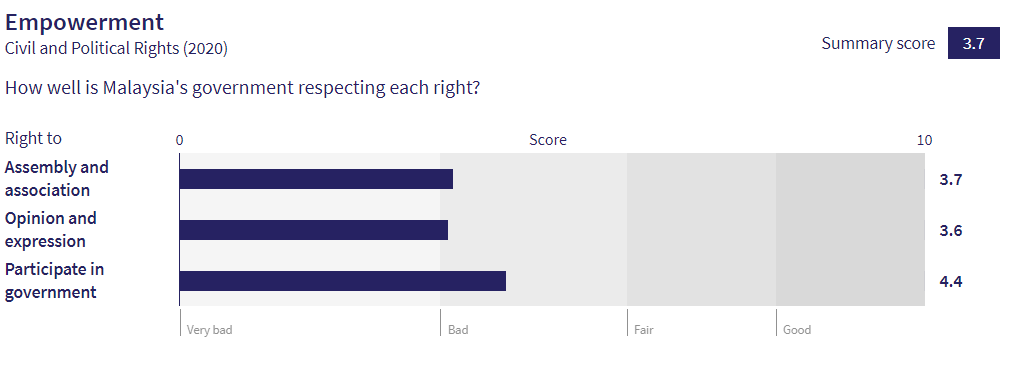
But hey, if it makes you feel any better… we did better than Vietnam.

But this is where it gets interesting. Vietnam basically scored the same as the previous year, where they were given a 2.3. This is because basically anyone who criticises the ruling party in Vietnam ends up getting beaten up, jailed, or at the very least face house arrest. Despite that, they are internationally recognised to have done a pretty good job when it came to handling the pandemic. So the pandemic control measures taken by governments aren’t really affecting the score.
Now, you might think our score was lowered because activists such as Fadiah Nadwa Fikri was investigated for sedition for protesting the new government, but… this kinda thing has been happening way before, and with previous governments in power.
The actual reason for our score plummeting that much is actually….
The best scapegoats – Migrant workers
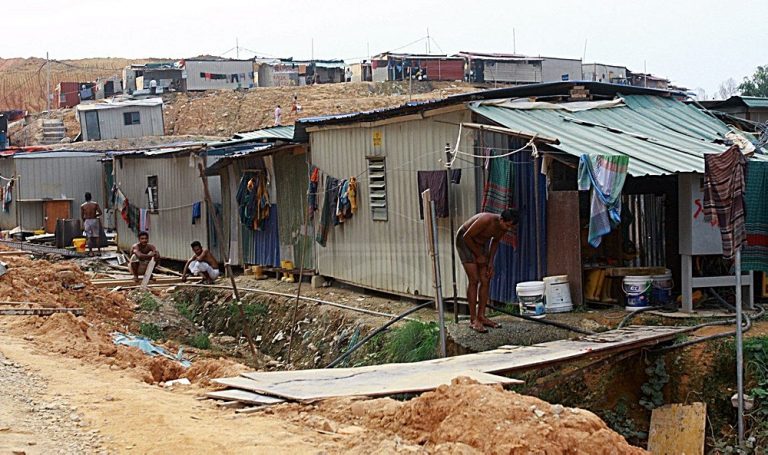
A portion of the study asked the respondents to identify groups that they considered to be vulnerable to human rights abuses, and these were compiled into a word cloud. The top 3 groups for Malaysia were those in low social or economic status, immigrants, and, topping the list, refugees and asylum seekers. In fact, refugees and migrant workers were mentioned by 93% of the respondents.

The study gave a few reasons for the concern, such as:
- Covid-19 being used as an excuse to target migrants and refugee communities
- Anyone who advocates for their rights, including the migrants themselves
- Inadequate housing, and discriminated against when trying to rent a place
- Removal of healthcare subsidy for migrants in 2016
- Potential to be arrested when getting healthcare
- Forced labour and slavery
- Dangerous working conditions
You can take a look at their full reasoning here.
Although there were other groups that were getting the shorter end of the PKP stick, the fact that 93% of respondents mentioned refugees and migrant workers makes them the paling kesian group in terms of human rights.
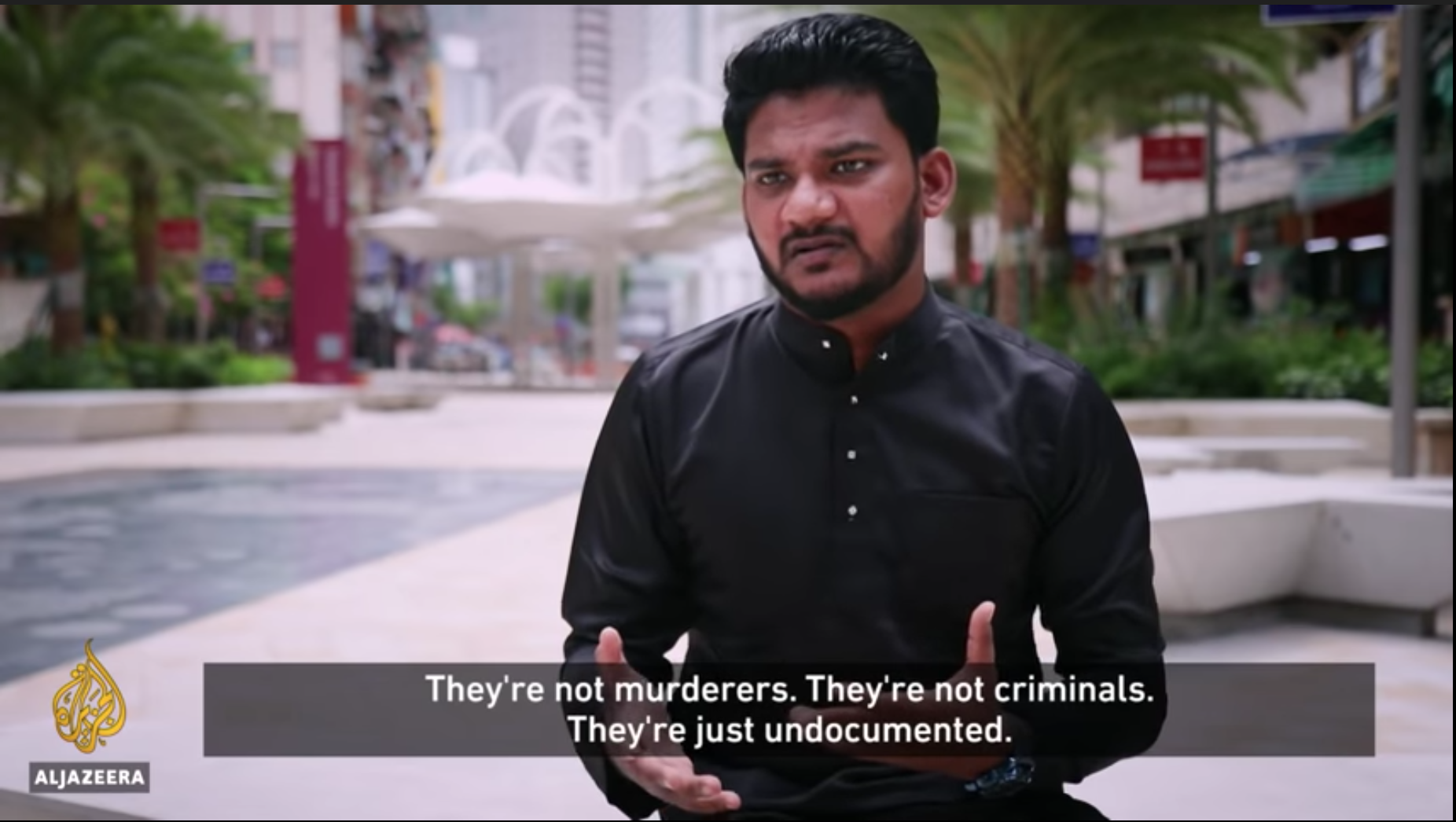
Case in point: you might remember al-Jazeera’s 2020 documentary on how migrants were treated during the pandemic. The news channel ended up getting charged with sedition and defamation while the Bangladeshi worker featured in the documentary was fired and deported. Just a few months after that, another Nepali worker was fired and deported for whistleblowing on a Top Glove factory’s lack of SOPs.
We’ve also written about their housing situation before and, even if you haven’t read the article, you would have definitely seen these houses yourself. They range from makeshift huts made from pieces of wood to overcrowded dormitories. Not that they have a choice – migrants are routinely discriminated against when trying to rent a place. And when an outbreak happens in the dorms, the workers might end up getting locked in or rounded up into detention centres.
Sadly, most of the reasons mentioned above aren’t new. These problems pop up in basically every annual human rights report on Malaysia. They just got worse during the pandemic.
What gives this single survey power is consensus
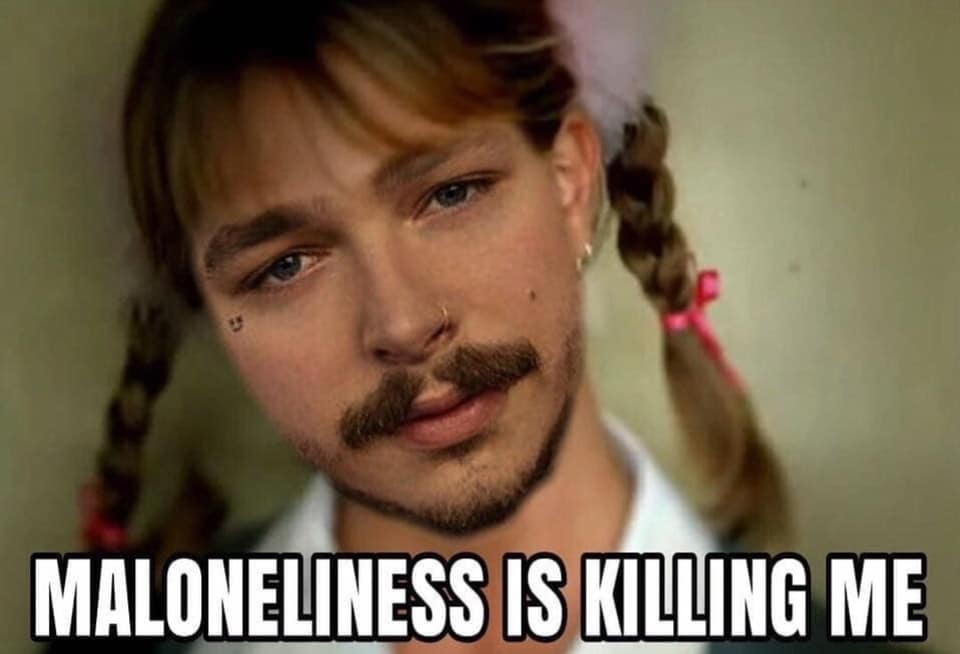
There are probably more surveys and studies on Human Rights than tattoos on Post Malone’s face right now, so you might ask – why should we even trust this one?
Well, if you look at just a single study then, sure, it could be a fluke or they might have asked a group of people who happened to hold similar opinions. But when other surveys done by different organizations show similar conclusions:
Then it kinda becomes harder to ignore the writing on the wall… that was probably constructed by a foreign worker.
- 499Shares
- Facebook469
- Twitter13
- LinkedIn6
- Email6
- WhatsApp5


